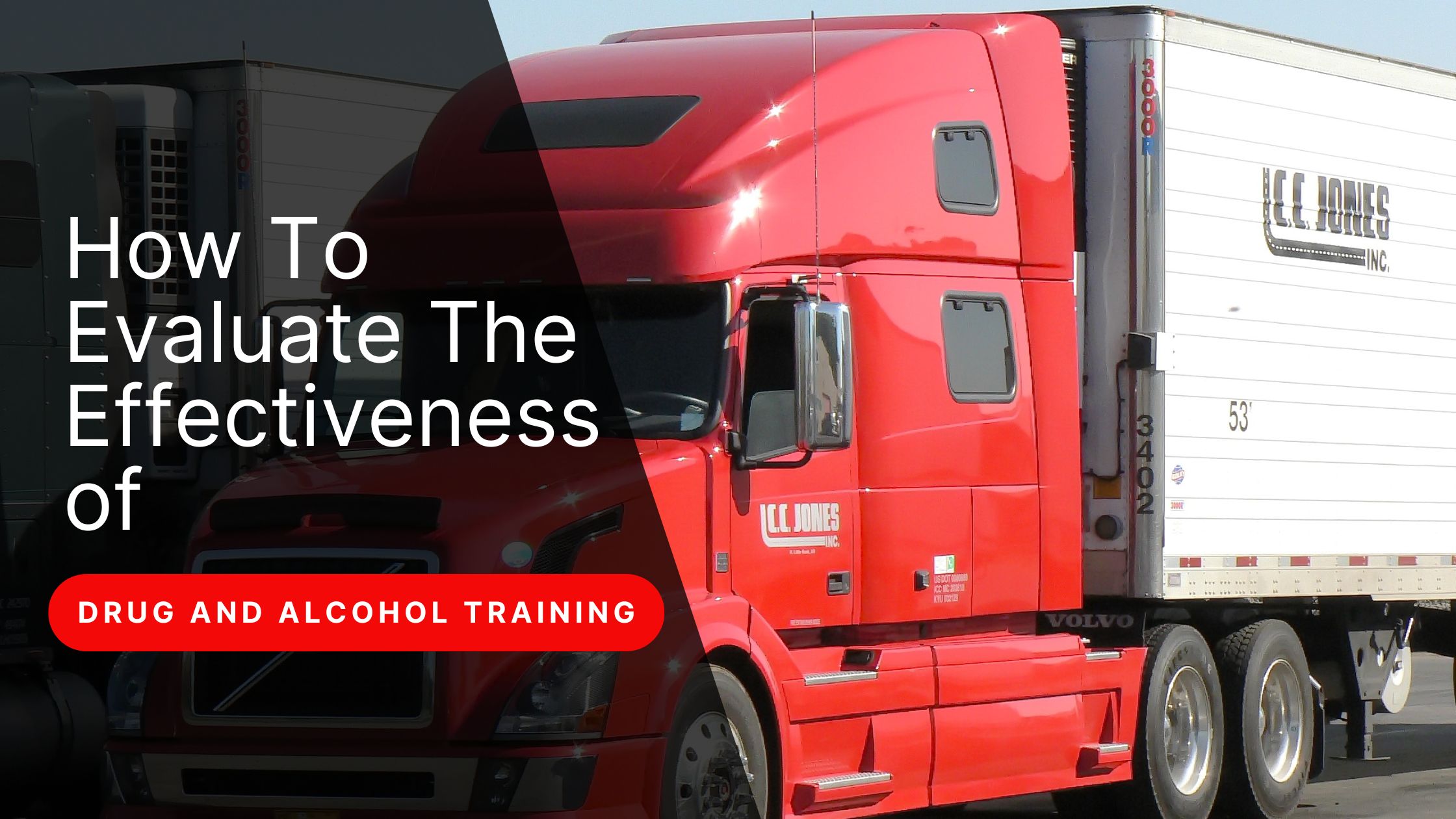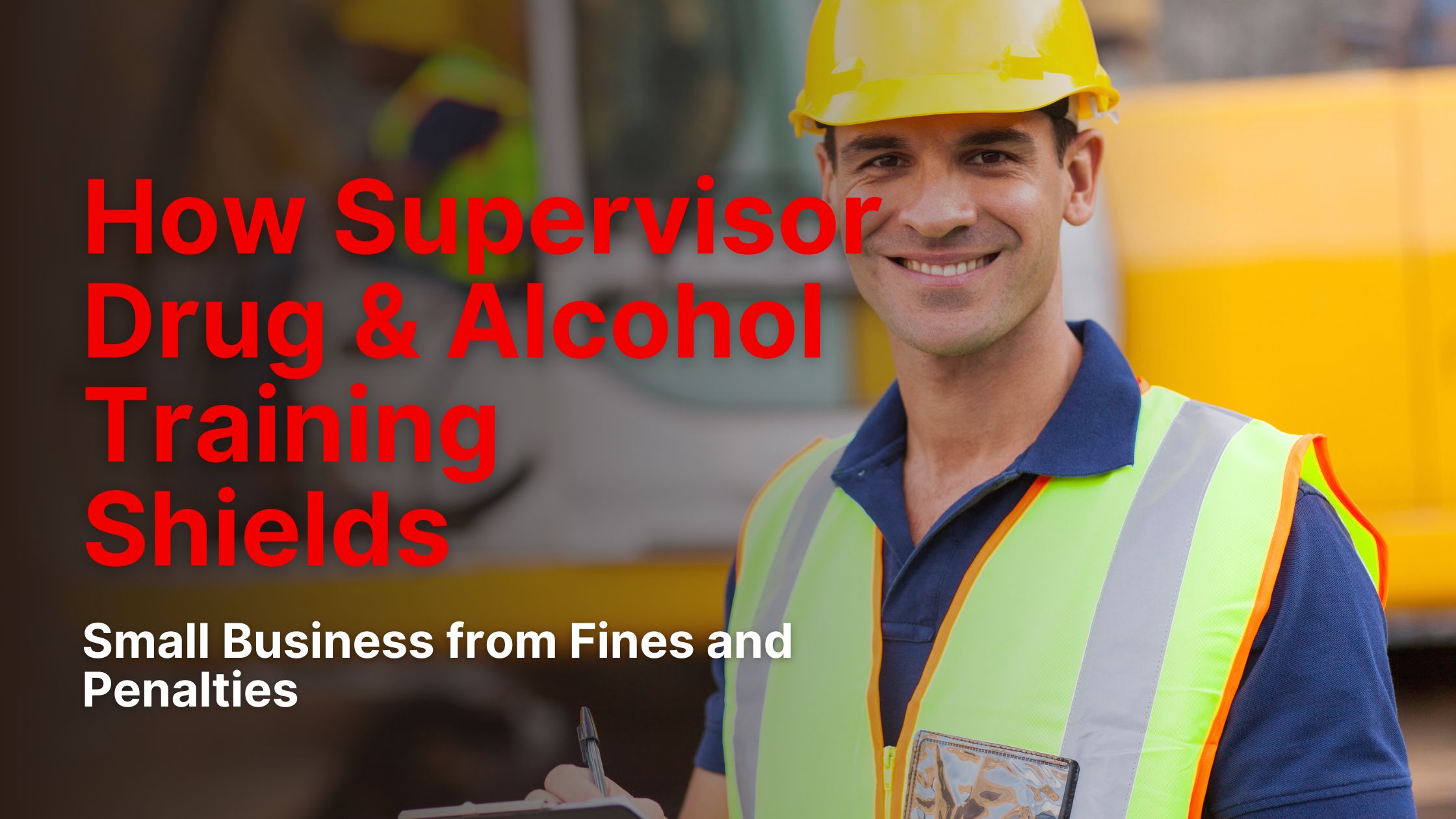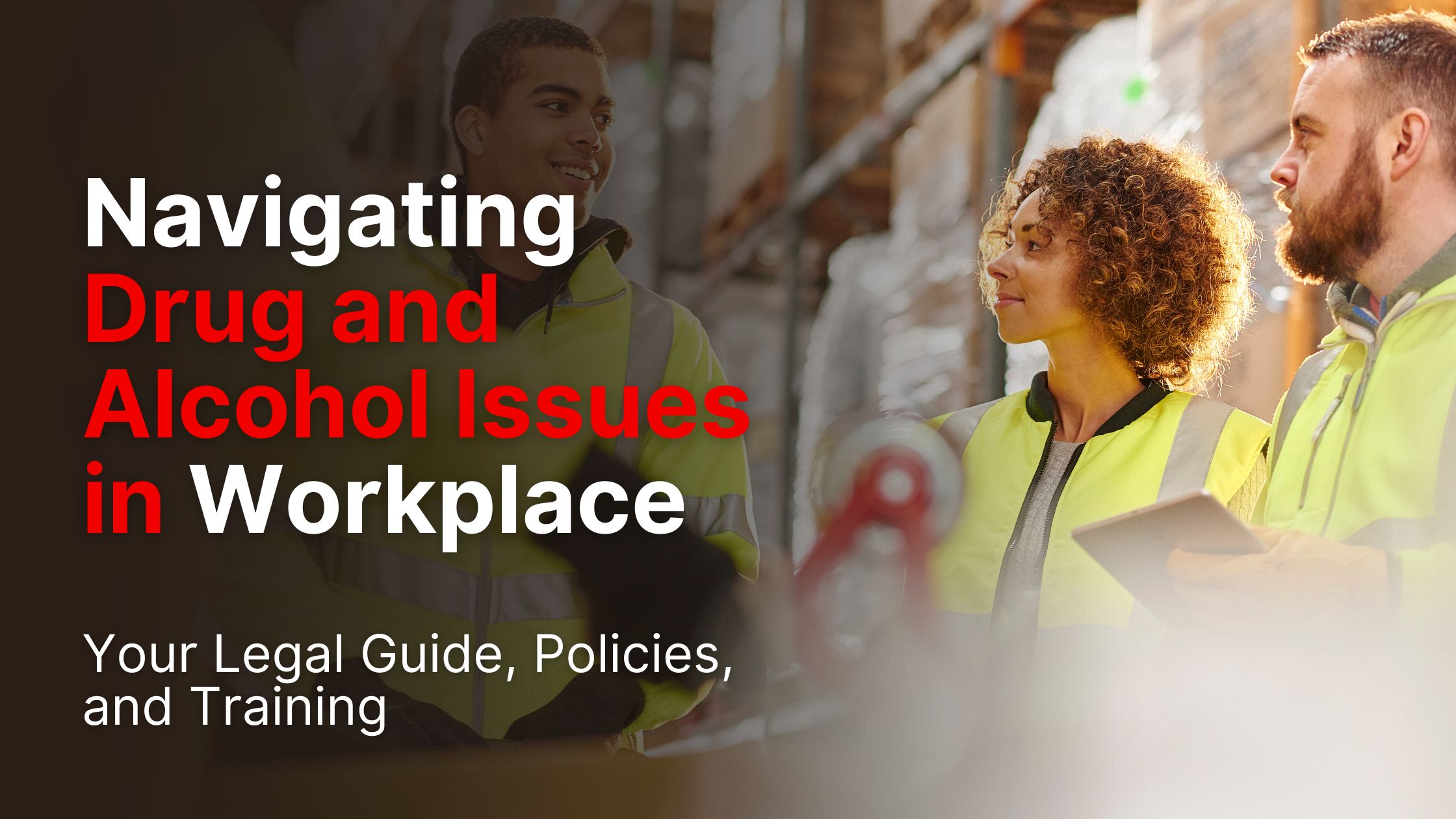In today’s fast-paced and demanding work environments, the safety and health of employees are most important for any organization. However, one challenge facing many companies is how to deal with the use of drugs and alcohol by its workforce.
Substance abuse can not only affect employees’ health and safety but also lead to a loss in production effectiveness, increased absenteeism, and potential legal liabilities for the employer.
One effective way to deal with this issue is through DOT Drug and Alcohol Supervisor Training.
This specialized field of instruction provides supervisors with the knowledge and skills required to recognize drug abuse or alcoholism in their employees, take action against them for suspicious behavior, and establish measures of protection from all hazards at work while maintaining a productive environment.
But what exactly do supervisors learn in this training? We will delve into the five key skills taught in DOT Drug and Alcohol Supervisor Training.
What is in Drug and Alcohol Supervisor Training?
Before moving on to the critical skills taught in the training, it is useful to know what Drug and Alcohol Supervisor Training involves.
It aims to help managers and supervisors understand various aspects of alcohol and drug abuse. For instance, relevant laws, spotting the signs of substance abuse, undertaking drug and alcohol testing- and coming (when necessary) to valuable interventions.
Using information like this, companies can respond to substance abuse problems proactively and in a way that benefits the whole workplace.
5 Key Skills imparted in "DOT Drug and Alcohol Supervisor Training:"
1. Signs and Symptoms Recognition
Recognition of signs and symptoms is crucial for supervisors so they can intervene early to prevent potential accidents. Supervisors must understand both physical and behavioral indicators that suggest substance misuse.
While physical signs include bloodshot eyes or changes in hygiene, behavioral signs manifest as erratic behavior, mood swings, or declining job performance.
Through rigorous training, supervisors learn to observe and document any concerning behaviors or issues keenly and then address them appropriately.
2. Reasonable Suspicion Assessment of Behavior
Supervisors are trained to assess employees effectively for reasonable suspicious behavior that has been caused by drug and alcohol use.
This skill involves understanding the criteria for reasonable suspicion testing, typically observable signs, symptoms, and behavior patterns indicating substance misuse. Supervisors learn to document observed behaviors and incidents well so that assessments consider every incident.
Always acting to the letter of company policies and regulatory requirements is essential for maintaining safety in the workplace and keeping employers free from expensive litigation.
3. Procedures and Regulations
DOT Drug and Alcohol Supervisor Training provides supervisors with a thorough knowledge of procedures and regulations governing drug testing in the workplace.
This includes understanding Procedures, details governing who may administer tests, when testing is required, and exactly just how different kinds of testing go.
Supervisors learn this technique to make sure that testing procedures are executed fairly. As a result, they can cope effectively with tests yet stay within regulatory guidelines.
4. Confrontation and Communication Skills
Effective communication is the key to addressing drug and alcohol abuse at work. Supervisors have to learn how to approach employees who may be suspected of substance misuse without being confrontational and in a way that will instead encourage them to come forward if they feel they have problems with drugs or alcohol.
Active listening, empathy, and giving assistance and resources are essential for these problems. Supervisors, by having open communication and offering healthy assistance, can encourage employees to seek help with problems related to substance abuse.
This skill requires that supervisors be capable of expressing himself or herself clearly and empathetically, which in turn builds trust and provides the right conditions for employees to tackle their own drug abuse problems.
5. Employee Assistance and Support
DOT Drug and Alcohol Supervisor Training emphasizes the importance of support and help for employees who struggle with drug and alcohol problems. Supervisors learn how to organize employee assistance programs (EAPs), get employees connected with treatment and counseling resources, and make the work environment supportive and conducive to recovery and health.
Through their help and guidance, supervisors play a crucial role in supporting employees to overcome substance abuse and achieve a healthy balance between work and life.
This capability can enable the supervisor to offer effective support to employees as they go through recovery and, at the same time, help set up an atmosphere within the organization that is caring and supportive.
How To Choose A Supervisor Drug And Alcohol Program For Your Organization?
The choice of a supervisor-level drug and alcohol program for your organization is crucial to maintaining a workplace that is both safe and productive. Here are a few key steps that can help guide you in making the right decision:
Assess Your Needs: Start by assessing your organization's particular needs and problems regarding drug and alcohol misuse. Consider factors such as how large your company's labor force is, whether industries have regulations on alcohol addiction or drug abuse that will affect what has to be done now, and if any past incidents in this area exist about employee health or Welfare.
Find out what Programs are Available: Spend some time researching the available supervisor drug and alcohol programs. Look for companies with experience in providing adequate training and who tailor the courses to your specific industry and organizational needs.
Check Curriculum and Content: Take time to go through each program’s content carefully. It’s vital that the training should embrace all essentials, such as identifying forms of substance abuse, how to carry out testing, and how best to offer aid to employees in need of help. You are looking for a comprehensive, up-to-date program that reflects industry best practices.
Be Aware of Flexibility and Accessibility: Choose a program that offers both flexibility for your supervisors and accessibility. You want them to take the course online or in person at times that fit their schedule and ways suited to their learning styles.
Go to the Sources: Ask other organizations or suppliers in your industry for feedback on any supervisor drug and alcohol programs they use. This will allow you to read other users’ comments, learn a little more about the quality and effectiveness of the programs, and make a better choice.
Evaluate Costs and Payback: Consider how much the program will cost relative to what it can do for your outfit. Look for courses that offer excellent value for money and give a clear payback--reflected in increased safety, production, and compliance.
To provide your supervisors with comprehensive and accredited training in drug and alcohol online courses, ICCouncil Supervisor Drug and Alcohol Training is the destination.
Our program covers essential topics, and supervisors who complete it will have both the knowledge and skills to deal effectively with their work environment concerning substance abuse.
Enroll today to ensure the safety and well-being of your employees while maintaining compliance with industry regulations.






